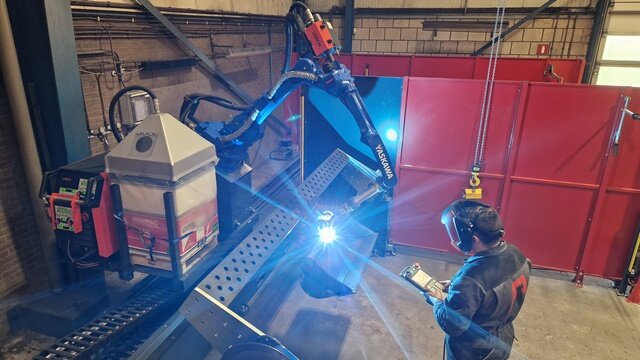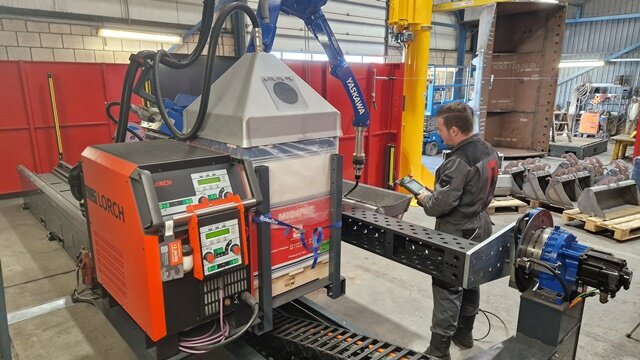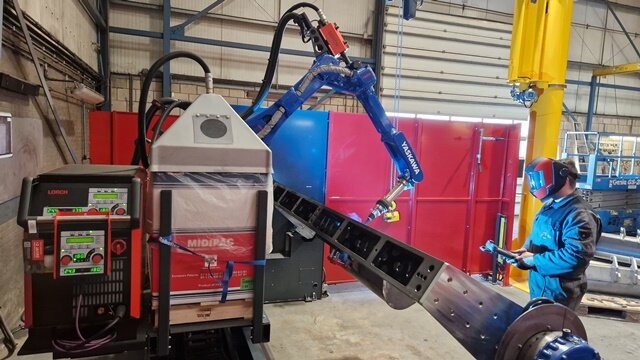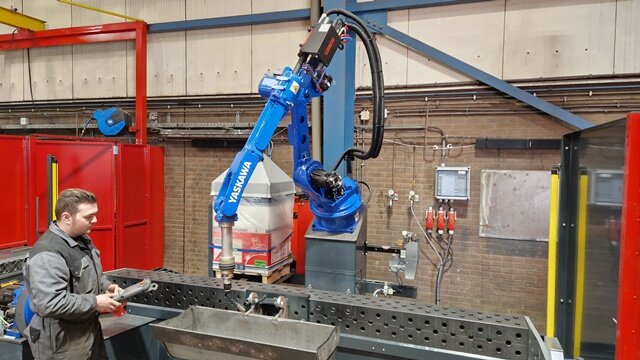Higher quality and lower delivery times with welding automation
The Pladdet family business is located in the Zeeuws-Vlaanderen town of Biervliet. For more than 80 years, Pladdet has been producing attachments (such as demolition equipment, excavator buckets and quick couplers) and machines in-house with more than 110 employees. Each year they produce 7,000 attachments and deliver 100 new machines using nearly 20,000 kilograms of welding wire and 5,500 tons of steel. Pladdet now exports worldwide, with permanent representatives in Belgium, England and Germany and dealers in Sweden, Denmark, France, America, Canada, Australia, Latvia and India, among others. In order to have the quality at the highest possible level and to reduce delivery times, Pladdet decided to automate part of the welding work.
High and constant welding quality
Pladdet had decided that a higher efficiency in the welding work was desired. In view of the high quality for which the company was already known, there was the ambition to take this to a higher level. By automating part of the welding work, a high and constant welding quality can be offered. Moreover, they can now weld several different products, in different batches and thus reduce delivery times.
Efficient setup
At the moment, the welding robot installation mainly welds different types of excavator buckets, such as rubble buckets, ditch buckets and clay buckets. The intention is to expand this in the future. The setup at Pladdet is very efficient. It concerns a welding robot AR2010 on a track, the working range of which is divided into 2 workstations. Products can be assembled in the first workstation, while products can be welded simultaneously in the second workstation. A Lorch setup is used to assemble the products. The products are then welded in the workstations with a Yaskawa product manipulator and an AR2010 welding robot equipped with Lorch welding equipment.
200% confidence
Pladdet was already familiar with the (welding) quality of Lorch through the manual welding equipment that had been in use there for some time. Thanks to the cooperation between Yaskawa Benelux and Lorch Lasmachines Belgium and the Netherlands, Yaskawa came into the picture in this automation project. Finally, Yaskawa Benelux account manager Kor Blijenberg made an excellent technical and commercial proposal, which, according to Pladdet, created “200% confidence” in the entire project.
“We make the best possible use of the welding robot and that is getting better and better. New products are welded every day. The first results are very positive,” says Niels de Feijter, Welding Robot Specialist/Operator. However, Pladdet's product range is not limited to excavator buckets and the implementation of the Lorch/Yaskawa welding robot is seen as a first step towards further automation of welding production. All parties involved look forward to a good continuation of the cooperation.
For more information about Pladdet, visit www.pladdet.nl
























